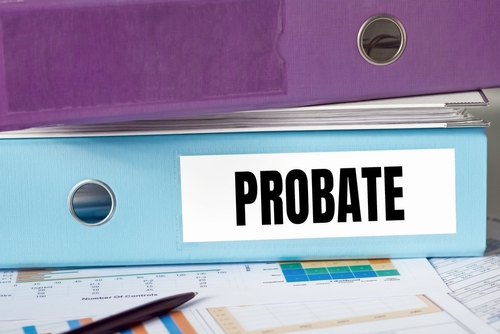After a person passes away, you can take on the legal right to manage their estate, including their property, money, and possession. This process is known as probate.
You will need to formally apply for probate. And for this, you will need certain documents. In this post we’ll outline the documents you’ll need when applying for probate.
One other thing you’ll need throughout the process is dedicated probate insurance, to cover any property while it’s unoccupied. For more information, get in touch with us, call us on 0208 8290 9086 or you can email the team direct at personal@anthonyjones.com.
How to Apply For Probate
You’ll have to apply for probate within six months of the day the individual passed away. If you meet certain criteria, you can apply for probate online. For this, you need to be the husband, wife, civil partner, or child of the deceased. If not, you will have to apply by post through filling in a relevant form.
What Forms Do I Need to Apply For Probate?
The form you’ll have to fill in to apply for probate will depend on whether or not the deceased left a will. If they left a will, you need to apply for power of attorney with form PA11. If they died interstate, you’ll need to use form PA12.
There are other forms for other situations. If you know the deceased left a will, but you cannot locate it, you’ll need to complete form PA13. Medical professionals can sign form PA14 to support a probate application.
For a full guide to the various probate application forms, head to the government’s dedicated probate information resource.
What Documents Do I Need To Apply For Probate?
You may need to provide the following documents as part of your probate application, even if you apply online:
- Death Certificate – Or a coroner’s certificate. This is to confirm the date of death.
- A Will – Along with any codicils the deceased may have made since making their original will. If the individual died interstate, or if you cannot locate a will, you will have to instead apply for a grant of letters of administration.
- ID – You will need a form of photographic ID to confirm your own identity, such as a passport or a driving licence.
- Tax Return – Even if the value of the estate falls below the inheritance tax threshold, you still need to provide a completed return as part of your application. However, there’s no need to pay any inheritance tax that might be due before you apply for probate.
What Else Do I Need To Apply For Probate?
- The Estate’s Value – You will need to provide an accurate figure for the value of the deceased’s estate. There’s a good guide on the government’s website for valuing the estate of someone who’s passed away.
- Court Fees – If the estate is worth less than £5,000, or less than £10,000 in Northern Ireland, then it’s free to apply for probate. Otherwise, you’ll have to pay a fee. In England and Wales, it costs £300 to apply for probate. In Northern Ireland, it costs £310 if you apply through a solicitor, or £387 if you apply yourself. You may be able to get a discount on the probate fee if you’re on a low income, or you’re claiming benefits.
- Probate Insurance – The deceased’s property may be unoccupied while you sort out their estate, and the probate process may take longer than you think. Most home insurance policies only cover “occupied” homes, and many standard policies are voided if the property is left unoccupied for a certain period. So while applying for probate, you should also consider specialist probate insurance to protect certain assets throughout the process.
At Anthony Jones, we understand how complex and confusing the probate process can get. So come and talk to us, and we will help you understand exactly what cover you need, and how long you need it for.
For more information, get in touch with us, call us on 0208 8290 9086 or you can email the team direct at personal@anthonyjones.com.


